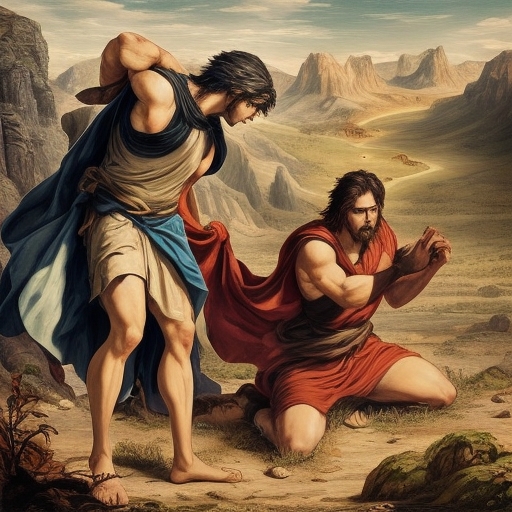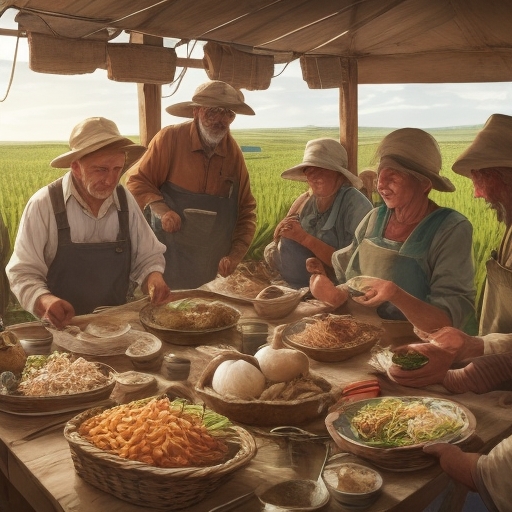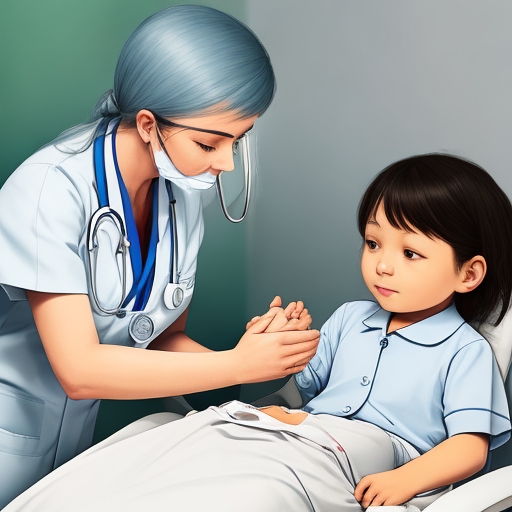In the bustling rhythm of our modern lives, we find ourselves entrapped within the confines of our own concerns, aspirations, and endeavors. It is a common human trait that we become so engrossed in our world that we unconsciously ignore or do not care about the presence of those around us. The person sitting next to us on the bus, the neighbor across the street, and the colleague in the next room all fade into the background of our busy minds.

It’s incredible how often we close our hearts and minds to the problems and needs of others. We have become experts at separating ourselves from the world beyond our immediate needs. We pass by people in need, pretend we don’t see them, and convince ourselves it’s not our responsibility to contribute. Some may even argue, “What happens to someone else is none of my problem; it doesn’t concern me.
But as we traverse this path of our ambitions, it is important to be aware of the unintended consequences of our self-indulgence. The more we immerse ourselves in our own narrative, the easier it is to ignore the narratives of others. This habit of ignoring the people who share our spaces is not born out of malice but is the result of the frantic pace at which we live. We unintentionally cast shadows on the lives, problems, and dreams of those who pass by.
Deprivation of the welfare of others is not necessarily due to selfish motives; instead, it is a reflection of the prevailing thinking of our time. Society, in its quest for efficiency and individualism, has unconsciously trained us to put personal development ahead of social welfare. A common mantra often says, “Take care of yourself,” and the positive effect is that we often overlook the importance of taking care of each other.
In this ongoing narrative of isolation, the idea of being one’s brother’s keeper may sound like an old idea—a holdover from a time when social relationships were stronger. Again. But is it possible that we have allowed our desire for personal development to obscure our responsibility to others? As we stand on the cusp of a new dawn, we must pause to consider how the constant pursuit of self-gratification can destroy human relationships that have the potential to elevate our lives in ways we scarcely imagine.
Join me on a trip to uncover the layers of separation that are all around us, investigate the many ways we unintentionally ignore those who share our space, and reawaken the spirit of group care and empathy that, despite its dormancy, still dwells inside each of us.
Uncovering the Layers of Care in Human Connection
The threads of quiet time frequently weave themselves into the fabric of our interactions in the modern world. Our justifications for being detached from the lives of those around us serve as a barrier against the inconvenience of empathy. The idea that “what happens to the other person is not my problem” is one of the most frequently used defense mechanisms. The statement perfectly captures the myth of non-involvement, which feeds the delusion that we are isolated islands untouched by the ebbs and flows of others’ lives.
However, if we were to dissect this viewpoint, we might learn about the tremendous interconnectivity that lies at the core of our existence. A strain on one thread causes ripples to appear throughout the entire tapestry, which comprises the seemingly unrelated threads of individual lives. Although we may not be aware of it, we are all a part of this vast plain, and those around us are intimately connected to our own.

We must first attack the idea that our lives are isolated to demolish this viewpoint. We live on the same planet, breathe the same air, and travel on the same surface of the world. To varying degrees, individuals we meet share our joys, sufferings, and experiences. Despite being separate, our life boundaries are permeable, allowing the currents of our shared existence to pass through.

Throughout history, the age-old question “Am I my brother’s keeper?” has reverberated, symbolizing the conflict between individualism and community. It refers to the story of Cain and Abel from the Bible, where Cain’s dismissive reply to God’s question about Abel’s whereabouts is a figurative representation of our internal conflicts. Although the subject is framed in terms of familial ties, it is relevant to the larger question of our obligations to one another as fellow humans living on a vulnerable planet.
It is easy to use this query as an excuse for not becoming involved, a linguistic fortress against an imagined weight of duty. But if we examine its core, we can find an invitation—a summons to acknowledge that we are, in reality, interwoven keepers of one another’s wellbeing. The term “keeper” here refers to someone who is a champion for another person’s potential rather than someone who is in charge of every aspect of their lives.
We must constantly remind ourselves that our choices—both major and minor—have an impact on the forces that shape other people’s lives in a society where division frequently seems easier. Our decisions unavoidably alter the features of the world we share, whether it is with a kind remark that uplifts someone’s spirit or a supportive action that gets them through a trying moment. We can start to understand our intrinsic position as interconnected creatures, each capable of having a beneficial influence on the lives of people we come into contact with, by dismantling the myth of non-involvement and challenging the veracity of our justifications.
Let’s push ourselves to go beyond the limits of self-interest as we negotiate the complex landscape of human connection. In the sections that follow, we’ll delve more into the ways we weave our lives together, investigating the many types of care that go beyond giving material things and revealing the hidden elements of our duties as each other’s caretakers in a world that feeds on compassion and communal well-being.
Unveiling the Unseen Acts of Care.
The movements we make in the complex dance of life have an impact far beyond our immediate path. Every action we take and every choice we make has a way of becoming woven into the larger tapestry of human existence, frequently affecting others’ lives in ways we might not even be aware of. This phenomenon highlights a universal truth: even when it isn’t immediately obvious, our goals are constantly connected to the welfare of others.
This revelation is rooted in an understanding of society’s fundamental interconnectivity. We are members of a dynamic ensemble, not lone performers on a massive stage where each performance affects how the whole story plays out. This idea goes beyond simple emotion; it’s a fundamental fact that affects the environment we live in.
Think about the wide range of vocations that make up the social landscape. No matter how disconnected a job may appear to be, it is a brushstroke adding to the masterpiece of communal existence.
Medical professionals: Visualize the caring hands of nurses and doctors attending to the sick and hurt. Their skill and commitment restore hope and well-being to lives that are in danger, in addition to treating physical wounds. Medical professionals encourage others to live more energetic, satisfying lives by promoting health.

Transport Workers: Imagine the world of bus drivers, railway conductors, and taxi drivers who transfer customers from one location to another. These people are charged with the duty of guaranteeing safe travel in addition to the commercial exchange of fares and ensuring that you and I get to our destination on time. By doing this, they make it possible for innumerable storylines to develop, romances to flourish, and aspirations to be pursued.

Think of the skilled workers—the plumbers, electricians, and builders—who, through their knowledge, create the framework for practical existence. Their efforts go much beyond the actual final product; they illuminate our homes, maintain the flow of our pipelines, and sculpt the urban environments that improve the quality of our lives.

Consider the producers of essentials, such as the farmers who cultivate the land and the fishermen who cast their nets. Their labor provides food for us, sustaining not only our bodies but also the ties that develop when we come together to share a meal.

Consider the function of information disseminators, such as the journalists and newscasters who notify us of events throughout the world. Beyond the screens, their words foster empathy, awareness, and occasionally even action. They amplify tales from all around the world to remind us of the universality of human experience.

Every occupation, every position, and each endeavor add a stitch to the rich fabric of society. The links may not always be apparent to us, but they still exist. The farmer’s work shapes the architect’s vision; the support of the nurse fortifies the writer’s commitment; and the teacher’s instruction inspires the engineer’s creativity.
Let us be cognizant of the significant effects of our actions as we consider the enormous interaction between roles. Let’s acknowledge that our efforts are not made in isolation; instead, they are part of a magnificent symphony, in which the harmony of the notes results in a piece that is more than the sum of its parts. We can start to understand the joy of contributing to a society where every action, no matter how seemingly tiny, improves the lives of everyone by appreciating the complex web of interrelationships that connect us.


